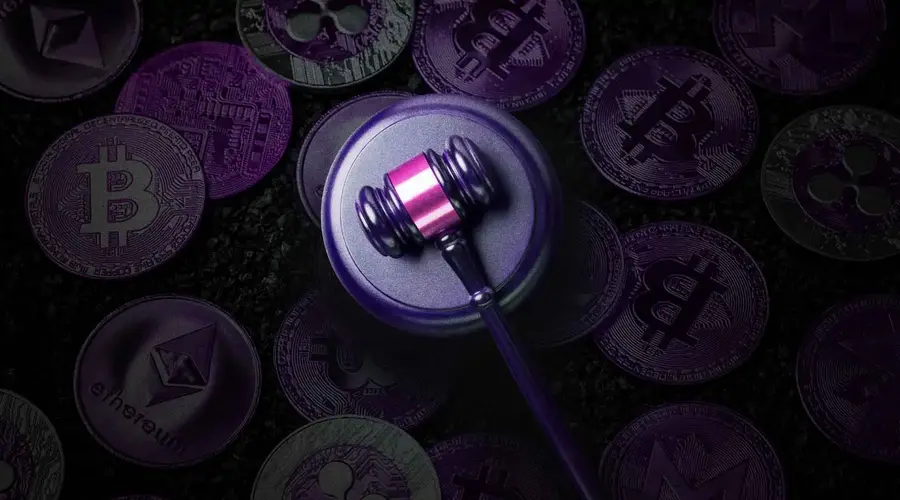As NFTs gain traction as a form of digital ownership, the NFT auction market has become a lucrative space for artists and collectors alike. However, with the potential for substantial financial gain, unscrupulous individuals have sought ways to manipulate the system. Shill bidding is one such method that can disrupt the fairness and transparency of NFT auctions.
Understanding NFT Auctions
Before delving into shill bidding, it is crucial to understand how NFT auctions function. NFT auctions take place on various online platforms, where sellers list their digital assets for sale, and potential buyers place bids over a specified period. The highest bidder at the end of the auction secures the NFT.
NFT (Non-Fungible Token) auctions have emerged as a popular method for buying and selling unique digital assets. In an NFT auction, individuals bid on these one-of-a-kind digital items, ranging from digital artwork and collectibles to virtual real estate and virtual goods. The auction process allows participants to place bids on the desired NFTs over a specified timeframe, with the highest bidder securing the item at the end of the auction. NFT auctions provide a platform for artists, creators, and collectors to engage in a competitive bidding process and acquire exclusive digital assets that hold value and significance in the digital realm.
What is Shill Bidding?
Shill bidding refers to the practice of placing fake bids on an auction item to inflate its price artificially. Shill bidders may act as fake buyers, artificially driving up the value of an NFT, creating a perception of high demand and enticing genuine buyers to place higher bids.
Shill bidding is a deceptive practice that occurs in various types of auctions, both online and offline. It involves the act of placing fake bids on an item with the intention of artificially inflating its price. The term “shill” refers to a person who pretends to be a legitimate bidder but is actually working in collusion with the seller or auctioneer. The purpose of shill bidding is to create a false sense of demand and drive up the price of the item being auctioned.
Shill bidders often employ tactics to make their bids appear genuine. They may create multiple fake accounts, each with a different identity, to give the illusion of independent interest in the item. These accounts may participate in bidding wars, strategically placing bids to outbid genuine bidders and increase the perceived value of the item.
The consequences of shill bidding can be detrimental to both buyers and the integrity of the auction process. Genuine bidders may end up paying inflated prices for items that do not truly hold the value they appear to have. The practice undermines trust in the auction system, making it difficult for honest participants to make informed decisions and obtain items at fair prices.
To combat shill bidding, auction platforms and regulators often implement measures to detect and prevent such practices. These measures can include analyzing bidding patterns, monitoring IP addresses, and implementing anti-shill bidding policies. By taking steps to eliminate shill bidding, auction platforms aim to maintain fairness, transparency, and trust in the auction process, creating a more reliable marketplace for buyers and sellers.

Tactics Used in Shill Bidding
– Creating Fake Accounts
Shill bidders often create multiple fake accounts to make their bids appear genuine. By using different aliases and identities, they attempt to give the illusion of independent buyers interested in the NFT.
– Coordinating with Others
Shill bidders sometimes collaborate with others to increase the impact of their fraudulent activities. They coordinate their bidding efforts, strategically driving up the price to maximize their gains.
– Placing False Bids
Shill bidders place bids without the intention of purchasing the NFT. These false bids can lure genuine bidders into escalating their offers, resulting in an inflated final price.
– Withdrawing Bids
To further manipulate the auction, shill bidders may retract their bids at critical moments. This sudden withdrawal creates confusion among genuine bidders, leading to increased competition and higher prices.
– Manipulating Proxy Bidding
Proxy bidding allows participants to set their maximum bid in advance. Shill bidders exploit this feature by artificially increasing the proxy bid amounts to discourage others from surpassing their bids.
Detection and Prevention Measures
To combat shill bidding and maintain the integrity of NFT auctions, several detection and prevention measures can be employed.
– Analyzing Bid Patterns
Auction platforms can analyze bidding patterns to identify suspicious behavior. Unusually frequent bidding activity from the same IP address or accounts with similar bid timings may raise red flags.
– Monitoring IP Addresses
By monitoring IP addresses, auction platforms can track and flag suspicious accounts associated with shill bidding. Multiple accounts originating from the same IP address may indicate fraudulent activity.
– Implementing Anti-Shill Bidding Policies
Auction platforms can implement strict policies against shill bidding and clearly outline the consequences for those found engaging in such practices. Clear guidelines can serve as a deterrent for potential shill bidders.
Consequences of Shill Bidding
Shill bidding not only disrupts the fairness of NFT auctions but also has broader consequences for the market as a whole.
- – Misrepresentation of Value
When shill bidding artificially inflates prices, it distorts the perceived value of NFTs. This misrepresentation can mislead buyers into overpaying for assets that may not have genuine market demand.
- – Discouragement of Genuine Buyers
Shill bidding can discourage genuine buyers from participating in auctions. The presence of fraudulent activity erodes trust in the auction process, leading potential buyers to question the authenticity of bids and the fairness of the entire system.
- – Erosion of Trust in the NFT Market
The prevalence of shill bidding can have a detrimental effect on the reputation and trustworthiness of the NFT market. Buyers may become hesitant to engage in future auctions, impacting the overall growth and sustainability of the market.
Legal Implications
Engaging in shill bidding can have severe legal ramifications for the perpetrators.
– Violation of Auction Rules
Shill bidding is typically a violation of auction rules set by platforms. Auction sites explicitly state that fraudulent bidding practices are prohibited, and those found engaging in such activities may face penalties or account suspension.
– Fraudulent Practices
Shill bidding can be considered a form of fraud, as it involves deceitful tactics to manipulate auction outcomes and deceive genuine buyers.
– Legal Action and Penalties
In some jurisdictions, shill bidding may be subject to legal action. Penalties can range from monetary fines to imprisonment, depending on the severity of the offense and local regulations.
Protecting Yourself as a Buyer
To safeguard against shill bidding and make informed decisions as a buyer, consider the following measures:
– Researching the Seller
Thoroughly research the seller of the NFT, including their reputation, previous auctions, and feedback from other buyers. A reputable seller increases the likelihood of a fair and legitimate auction.
– Scrutinizing Bid Histories
Examine the bid histories of other participants. Look for suspicious bidding patterns or accounts that frequently engage in shill bidding tactics. This analysis can provide insights into the authenticity of bids.
– Using Trusted Auction Platforms
Prefer established and reputable auction platforms known for their robust security measures and anti-shill bidding policies. These platforms prioritize the fairness of auctions and actively work to combat fraudulent activities.
– Exercising Caution and Due Diligence
Approach NFT auctions with a critical mindset. Be cautious of suspiciously low starting prices, unreasonably high bidding activity, or sudden price escalations. Conduct thorough due diligence before placing bids.
Conclusion
Shill bidding poses a significant threat to the fairness, transparency, and trustworthiness of NFT auctions. By artificially inflating prices, shill bidders manipulate the market and deceive genuine buyers. It is crucial for auction platforms and participants to remain vigilant and take proactive measures to detect and prevent shill bidding.
As the NFT market continues to evolve, maintaining integrity and trust will be paramount for sustainable growth. By understanding the tactics employed by shill bidders and implementing robust safeguards, we can create a more transparent and equitable environment for NFT auctions.
FAQs
1. Can shill bidding occur in any type of auction, or is it specific to NFTs?
Shill bidding can occur in various types of auctions, including traditional ones. However, the digital nature and booming popularity of NFTs have made them a target for such fraudulent practices.
2. Are there any penalties for sellers who engage in shill bidding?
Yes, sellers who engage in shill bidding can face penalties imposed by auction platforms. They may have their accounts suspended or face legal consequences, depending on the severity of their actions and local regulations.
3. How can auction platforms protect against shill bidding?
Auction platforms can implement measures such as analyzing bidding patterns, monitoring IP addresses, and establishing strict anti-shill bidding policies. These actions help deter fraudulent behavior and maintain a fair auction environment.
4. Are there any warning signs buyers should look out for to identify shill bidding?
Buyers should be wary of suspiciously low starting prices, frequent bid withdrawals, or rapid and unnatural price escalations. Scrutinizing bid histories and researching sellers can also provide valuable insights into the authenticity of bids.
5. Can the effects of shill bidding be reversed, or do they permanently impact the NFT market?
While the effects of shill bidding can damage trust and perception in the short term, proactive measures and increased awareness can help mitigate these impacts. Implementing detection and prevention measures can restore confidence in the NFT auction ecosystem over time.
